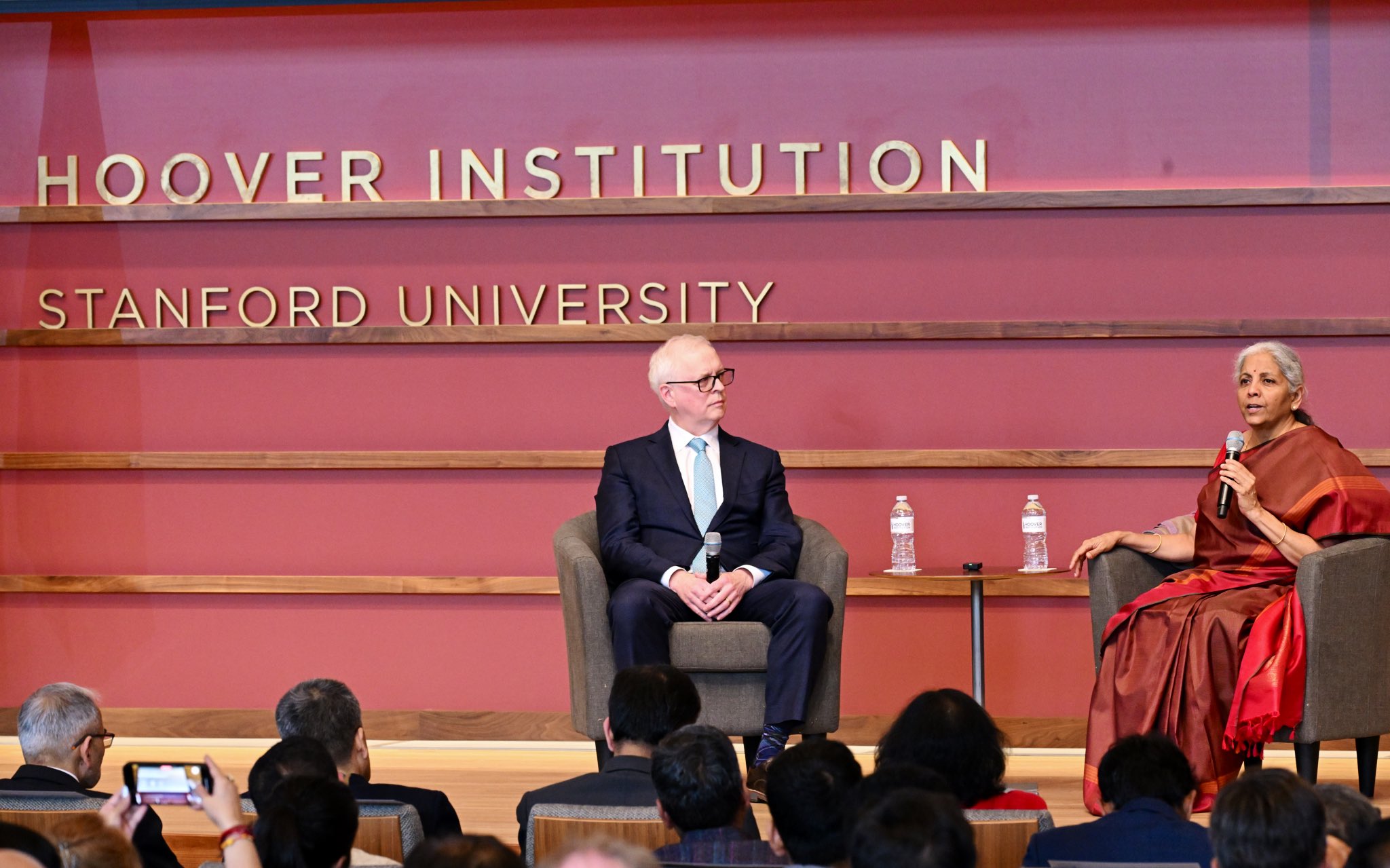
India aims to double share of manufacturing in GDP to 23% helped by sunrise sectors : FM
SAN FRANCISCO : Finance Minister Smt. Nirmala Sitharaman on Monday said India plans to increase the share of the manufacturing sector from 12 per cent to 23 per cent over the next two decades, aiming to create jobs and drive economic growth.
India is focussing on 14 identified sunrise sectors like semiconductors, renewable energy components, medical devices, batteries and labour intensive industries, including leather and textile, to enhance the share of manufacturing in GDP, she said while speaking at Hoover Institution at Stanford University California.
For India,”scaling up manufacturing is essential to absorb a youthful workforce, reduce import dependencies and build competitive global supply chains,” the Finance Minister stated, underscoring the importance of this initiative for India’s development trajectory.
Sitharaman observed that the world is undergoing a significant reset in manufacturing due to the fourth industrial revolution, with India experiencing parallel transformations.
She highlighted the current imbalance in India’s economic structure, noting that while the service sector contributes approximately 64 to GDP, manufacturing remains underdeveloped despite its potential.
The Finance Minister also addressed the rapid growth of India’s gig economy, projecting an increase from 7.1 million workers in 2021-22 to approximately 230 million by 2030. However, she emphasised this should not diminish focus on manufacturing growth.
To strengthen the manufacturing sector, the government has implemented production-linked incentive (PLI) schemes for the 14 sunrise sectors, with particular attention to industries offering substantial employment opportunities such as electronics, textiles, and leather.
Sitharaman emphasised that manufacturing plays a crucial role in binding societies and providing cohesion to communities through employment opportunities and financial strength.
She described manufacturing as a cornerstone of the economic transformation of nations from 19th century Britain to 21st century East Asia, noting its catalytic effect on skills development, infrastructure demand, and governance reforms.
When questioned about recent tariff actions by the Trump administration and their potential impact on India, the Finance Minister stressed that stability in government, policy consistency, and predictability in tax regimes are essential factors that allow for effective planning and execution of investments and growth strategies.

